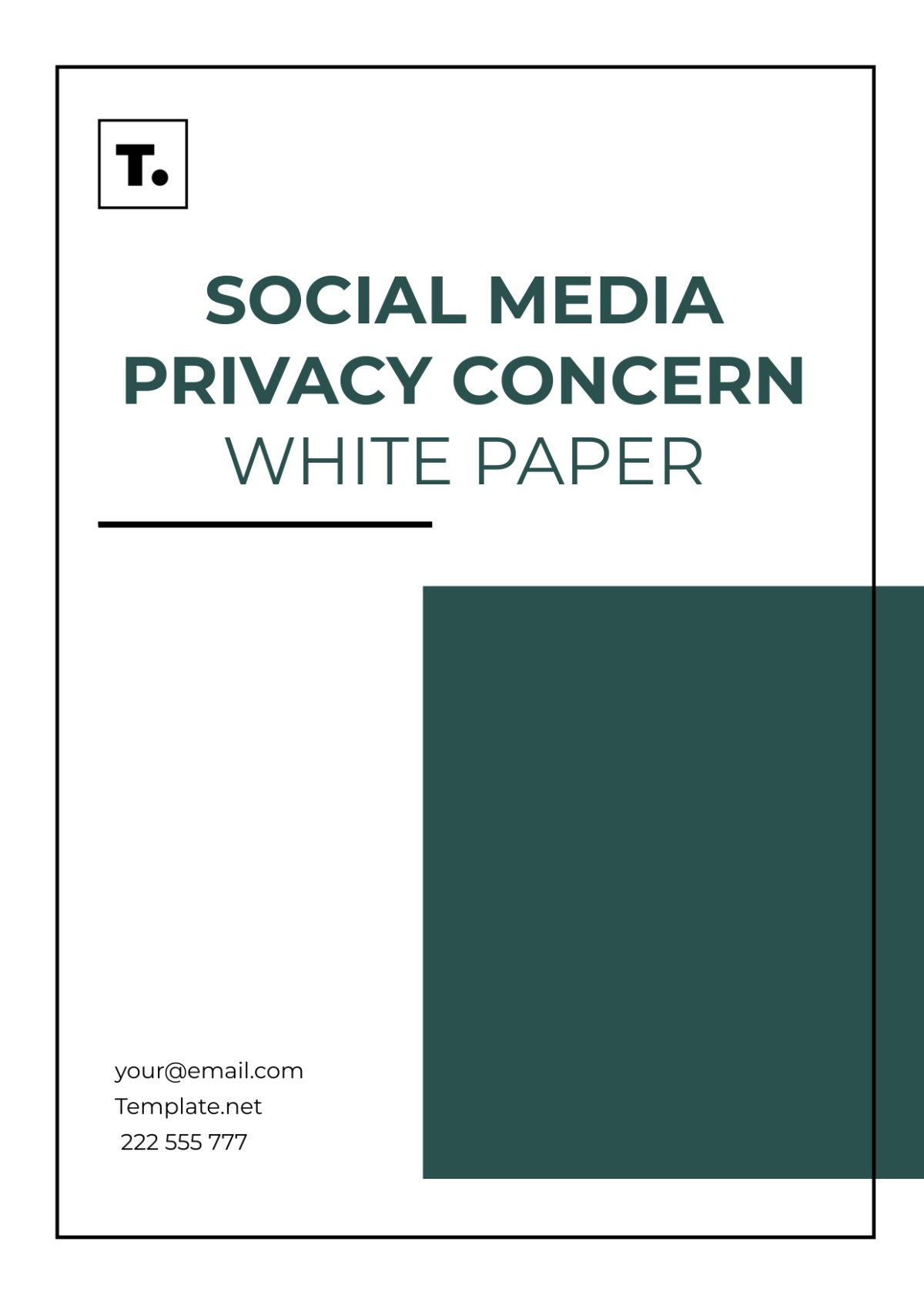Free Social Media Privacy Concern White Paper

Addressing Social Media Privacy Concerns in the Digital Age
Prepared by: [YOUR NAME]
Date: [DATE]

I. Introduction
Social media has become an integral part of modern society, facilitating communication, information sharing, and networking on a global scale. However, alongside its benefits, social media also raises significant concerns regarding user privacy. This white paper explores the evolving landscape of social media privacy, its impact on individuals and organizations, and strategies to mitigate associated risks.
II. Executive Summary
In an era dominated by digital connectivity, social media platforms gather vast amounts of personal data to tailor user experiences and support targeted advertising. This white paper identifies key privacy concerns stemming from data collection practices, security vulnerabilities, and regulatory gaps. By understanding these challenges, stakeholders can proactively address social media privacy issues.
III. Background
3.1 Social Media Landscape
The proliferation of social media platforms like Facebook, Twitter, and Instagram has transformed how people communicate and interact online. These platforms host billions of users worldwide, generating enormous volumes of user-generated content and personal data.
3.2 Privacy Regulations
Privacy regulations such as the European Union's General Data Protection Regulation (GDPR) and the California Consumer Privacy Act (CCPA) impose strict requirements on data collection, usage, and user consent. However, challenges persist in enforcing these regulations across global social media networks.
IV. Key Privacy Concerns
4.1 Data Collection Practices
Social media platforms employ sophisticated data collection techniques to gather user information, including demographics, interests, and browsing behaviors. This information fuels targeted advertising but also raises questions about user consent and data ownership.
4.2 Privacy Breaches and Incidents
High-profile privacy breaches, such as the Cambridge Analytica scandal, underscore the risks associated with centralized data repositories and inadequate security measures. These incidents erode user trust and highlight the need for robust data protection protocols.
V. Impact on Users
5.1 Psychological Effects
Continuous exposure to social media can lead to psychological consequences, including heightened anxiety, decreased self-esteem, and addiction-like behaviors. Concerns over privacy invasions contribute to these negative effects.
5.2 Privacy Awareness
Despite growing awareness of privacy issues, many users remain unaware of the extent to which social media platforms collect and utilize their data. Improved transparency is essential to empower users to make informed decisions about their privacy settings.
VI. Corporate Responsibility
6.1 Best Practices for Companies
Organizations must prioritize user privacy by adopting best practices such as anonymization of data, regular security audits, and transparent data handling policies. Proactive measures can enhance user trust and mitigate privacy risks.
6.2 Transparency and Accountability
Companies should enhance transparency regarding data collection and usage practices, ensuring clear communication of privacy policies and providing users with meaningful control over their data. Accountability mechanisms are crucial to fostering trust in digital platforms.
VII. Future Trends and Recommendations
7.1 Emerging Technologies
Blockchain technology holds promise for decentralized, privacy-preserving social networks. Artificial intelligence can enhance data security and facilitate granular privacy controls, reshaping the future of social media privacy.
7.2 Policy Recommendations
Governments and regulatory bodies must collaborate with industry stakeholders to develop comprehensive privacy frameworks that address global challenges. Enhanced enforcement and harmonized standards can bolster user privacy rights.

VIII. Conclusion
In conclusion, social media privacy concerns pose complex challenges requiring multifaceted solutions. By promoting transparency, accountability, and responsible data practices, stakeholders can safeguard user privacy while fostering innovation in the digital ecosystem.
IX. About the Author
This document was created by [YOUR NAME], a leading expert in digital privacy and online security, working at [YOUR COMPANY NAME] within the [YOUR DEPARTMENT]. With extensive experience in addressing and resolving privacy implications of digital technologies, [YOUR NAME] brings a wealth of knowledge and insights to this discussion.
For further information or inquiries, please contact the Privacy Research Department at [Your Company Email].
- 100% Customizable, free editor
- Access 1 Million+ Templates, photo’s & graphics
- Download or share as a template
- Click and replace photos, graphics, text, backgrounds
- Resize, crop, AI write & more
- Access advanced editor
Introducing the Social Media Privacy Concern White Paper Template from Template.net! Craft informative white papers addressing social media privacy issues effortlessly. This template is fully editable and customizable, empowering you to tailor content and design to your needs. Use our Ai Editor Tool for seamless editing and customization. Effectively address privacy concerns with professional white papers.





























